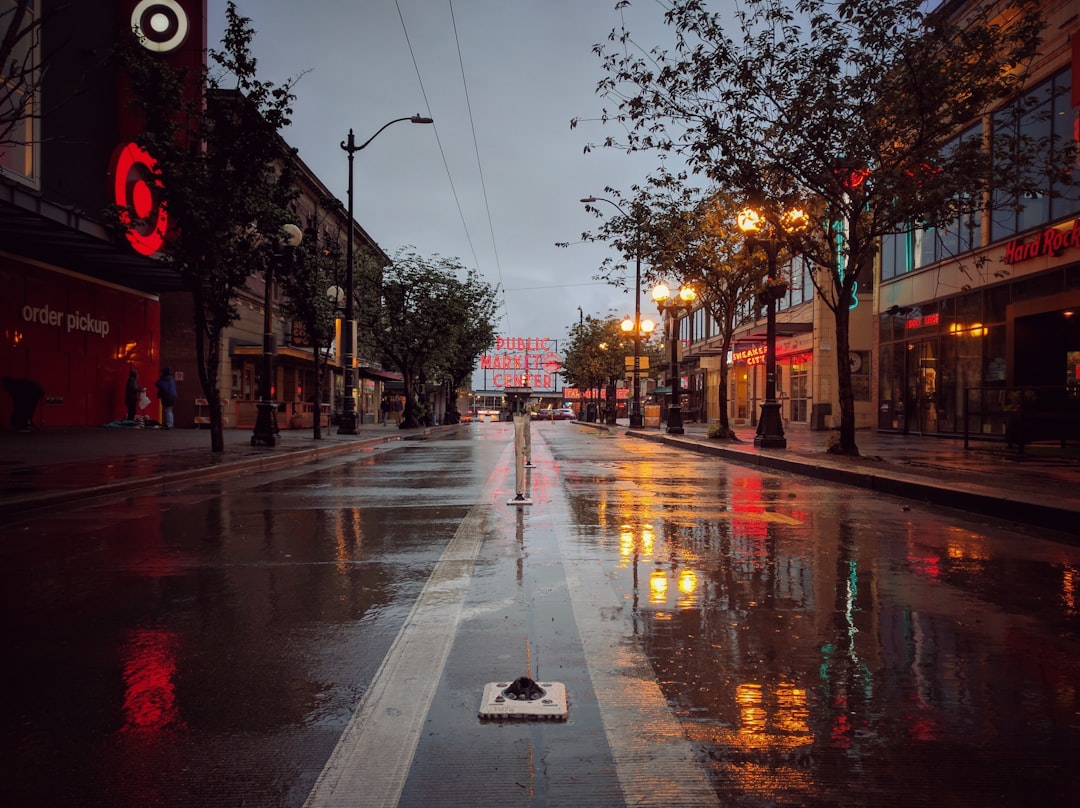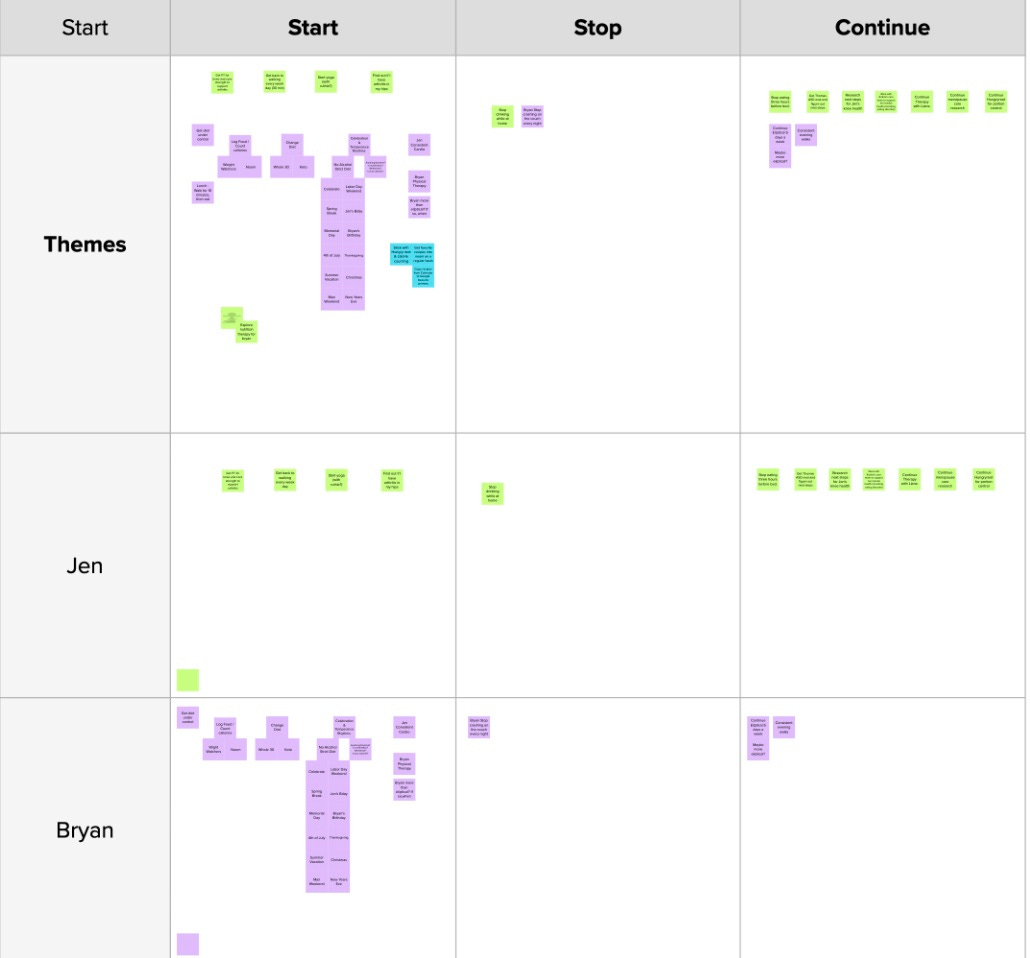For our second guest post of January, we go to who writes the newsletter on Substack.
After reading Jen’s story, you will want to subscribe to her newsletter. < Or just do it now, then read her story!
Jen offers an intimate peak into her family’s annual financial planning process, followed by a detailed look at their housing situation, which includes a solid income property and a move from owning a home in suburbia to apartment renting in Seattle.
A real-life illustration of so many of the things we discuss in the Never Retire newsletter.
Enjoy!
Every year my husband, Bryan, and I take a few days between Christmas and New Year's to kick off our annual family retrospective. It’s not a goal-setting thing where we decide to read a certain number of books or lose a certain number of pounds. Rather, it’s a broad look at what we want to be ABOUT over the next year, and how that fits in with the general direction we’ve set for ourselves.
We frame our planning around four categories:
Health - physical, mental, spiritual
Work - financial, career, home
Play - travel, creativity, entertainment
Love - marriage, family, community
These come from the book, Designing Your Life: How to Build a Well-Lived, Joyful Life, by Bill Burnett & Dave Evans.
I like the approach of paying attention to all four of these areas because, at least for me, “planning” can tend to focus heavily on career, work, and financial tasks. I’m a Task Master. But I’m also a Whole Person who is married to another Whole Person, and we work hard to stay playful, healthy, and plugged into a community for the sake of our marriage and our sanity.
We’re kind of a nerdy couple with a deep love for sticky notes and “post-up” exercises, though lately we’ve been using digital sticky notes in an online collaboration tool. In our approach, we reflect on the past year, and for each category we write down what we want to STOP, START, and CONTINUE doing.
Here is an example of one we did for HEALTH:
We first take a few minutes to independently add sticky notes to our own rows, then we spend time talking about what we wrote down.
Sometimes this is easy, and sometimes it gets emotional.
We’re mostly on the same page, but sometimes the conversation gets intense. Sometimes Bryan says he’s worried about me in a certain area and wants to focus on how he can support me. Sometimes I remind Bryan that his identity doesn’t have to be wrapped up in that thing, and I fully support his letting it go.
Sometimes we yell at each other and get mad because our favorite sticky note gets deprioritized, but I won’t spoil the mood by getting specific. 😂
Bottom line, by using a retrospective in our annual planning, we stay connected to our long-term priorities and decide what dials we need to turn as our circumstances shift.
Here are a few examples of what came out of this year’s planning:
In PLAY: We agreed to limit our TV time to one hour in the evenings to wind down before bed. We’re both introverts with highly interactive jobs, so we’d gotten into the habit of vegging on the couch after dinner to watch throw-away shows. This was getting bad for our mental health, creative life, and ability to recharge for the next day, so we’re working on filling our evenings with games, puzzles, conversation, reading, and working on creative projects (like writing!).
In HEALTH: We both have health goals. Mine is related to arthritis in my knees and general joint inflammation. I need to adopt an anti-inflammatory diet and make an appointment with a specialist to see if a knee replacement surgery is in my immediate future (it’s that bad).
In LOVE: We’re planning a few weekend getaways this year without the kids. We’re on the cusp of becoming Empty Nesters, so it’s important that we continue cultivating a relationship that is strong apart from parenting. We’re also continuing our weekly Fire Nights that have become increasingly important to our friends and community.
In WORK: We outlined next steps in figuring out one aspect of our retirement plan: buying property or building a DADU. We own our home plus we own a rental property. We’re exploring the feasibility of additional property-related opportunities, including the possibility of building a rental apartment above our detached garage for additional income. We’re still exploring options and have a list of people to call and budget-related tasks to figure out.
Let’s dive into the WORK category with more detail for the topic at hand – Never Retiring.

Bryan and I own rental property in a suburb south of Seattle. It was our primary residence from 2003 - 2012, when we moved to an apartment in Seattle to be closer to work and our community, and to give our kids the experience of growing up in an urban center (hey homeless neighbor).
At first we had a high tenant turnover rate, and the rental income barely covered the mortgage. If anything went wrong, it came out of our pockets. Every year at tax time it was written off as a loss, and I became anxious to just sell it.
But Bryan was playing the long game and insisted we stick it out, especially since our income at the time could manage the gap. In buying a house, we had done what many young families in their 30s couldn’t afford to do in one of the most expensive cities in the country. He didn’t want to let it go unless it was the only option.
I’m so glad I listened to him, because the long game is paying off. In 2016 a family moved in who still rents from us today. Over time, equity in the property increased. In 2018 we were able to leverage the house for a down payment on a second home that is now our primary residence, and in 2021 we refinanced and secured interest rates well below 4% on both properties.
The rental is now paying for itself in full, with about $300 left over each month that we save for improvements. After several years of profitable renting, we have a savings of $16k in that account to cover anything major that might come up.
So what’s the plan?
We don’t have a huge pot of money waiting for us at retirement. An early career in startups and owning small service businesses meant we didn’t spend those years earning enterprise stock options or contributing to employer-based retirement accounts. We’re catching up on that now, but real estate is one of our retirement strategies.
It’s been our intention for many years to hang onto the rental house until we need it. Maybe down the road we sell it and live off the profit in retirement. Or maybe we keep the house and the math works out so the rental income pays for our monthly housing in retirement.
Additionally, a couple of new opportunities have presented:
The property next door is being developed (like many properties in Seattle since the density zoning changed in 2019), and soon multiple houses will be for sale. They’re not on the market yet, but I feel like they’ll be $700k minimum. Can we afford to buy one?
Zoning in our area allows for construction of one detached auxiliary dwelling unit (DADU) on the lot of our primary residence. We’ve received a rough estimate of $250k - $500k for building a one bedroom apartment above a shop/garage. Is this a viable option for increasing our rental income in the future?
Over the next few months we’ll look for answers to these questions and figure out next steps.




I would compare the $700K monthly mortgage payment with what you can charge for monthly rent, and then do the math. If the rent can't cover the mortgage, when will it and can you swing the gap & maintenance out of pocket like you did with the Renton property? Having an investment property right next door is great.
Greetings from a former Seattleite. Great post and love the intentionality. Glad you were able to hang on to that house as buying a house in Seattle back in 2008 definitely helped us get where we are today.